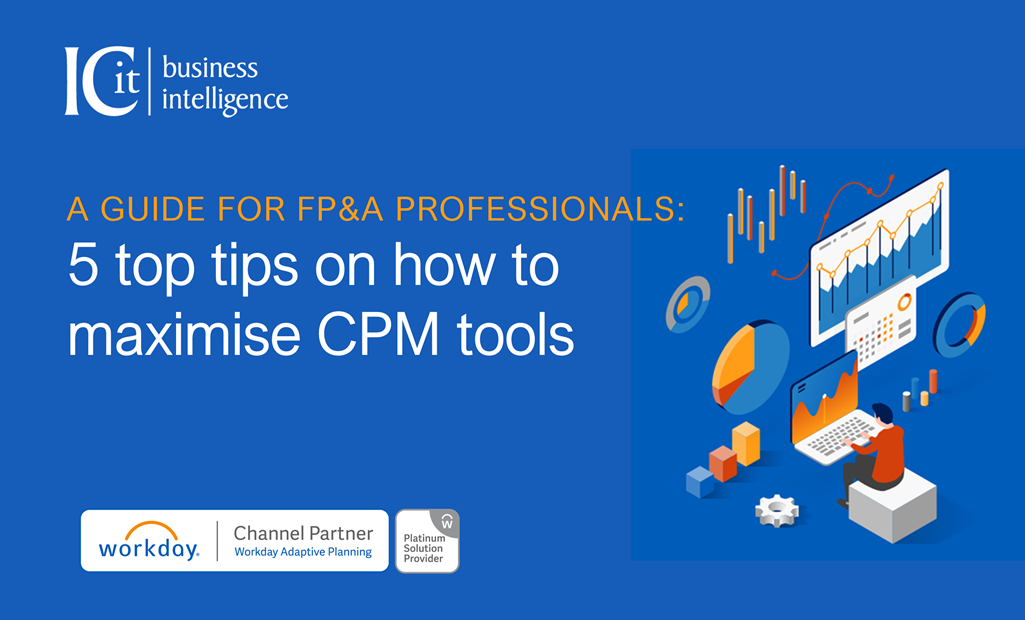Optimising FP&A Processes: Why Manufacturers Choose Workday Adaptive Planning
FP&A teams in manufacturing companies face a tough balancing act. They grapple with changing material costs, unpredictable demand, global supply chain and sustainability challenges, and the constant push to boost efficiency to stay competitive.
In this busy landscape, you need clear, quick insights to make smart decisions. That’s why finance teams choose Workday Adaptive Planning.
To learn more about our FP&A Solutions for Manufacturing companies with Workday Adaptive Planning, arrange a call with one of our Consultants.

Helping you address the key FP&A challenges in Manufacturing
Volatile Supply Chain Dynamics
FP&A teams must anticipate and plan for disruptions in the supply chain, stemming from factors like geopolitical events, labour issues, or natural disasters, which can significantly impact costs and production timelines. With Workday Adaptive Planning new what-if scenarios can be created on-the-fly in minutes. Companies can quickly model the impact of supply chain volatility to future plans.
Demand Forecasting Accuracy
Predicting product demand in an ever-changing market is challenging. Miscalculations can lead to overproduction, tying up capital in unsold inventory, or underproduction, missing out on potential sales. Workday Adaptive Planning makes forecasting a simple, continuous and fast process with connected, driver-based planning rules that can update a complete forecast whenever data, drivers or KPIs change.
Operational Cost Fluctuations
The costs of raw materials, energy, and labour can vary greatly over short periods, making budgeting and cost management a complex task for FP&A professionals. Using Workday Adaptive Planning businesses can manage complex granular costs centrally in a single, secure platform, saving time and improving visibility and control.
Sustainability and Regulatory Compliance
As global emphasis on sustainability grows, manufacturers face the challenge of integrating eco-friendly practices into their operations while also adhering to evolving environmental regulations and standards. This adds another layer of complexity to financial planning and analysis. Workday Adaptive Planning offers multi-dimensional reporting capabilities to support strategic decision-making, whilst ensuring sustainability and regulatory compliance.
Why Workday Adaptive Planning is the Best Choice for Manufacturers
- Unified Financial and Operational Data – Workday Adaptive Planning offers an integrated platform that consolidates financial, sales, and operational data. This holistic view improves forecasting accuracy, ensuring that financial plans align with on-ground operational realities.
- Dynamic Forecasting and Scenario Modelling – With its robust scenario planning capabilities, manufacturers can simulate different production scenarios, evaluate the impact of supply chain disruptions, or assess potential market shifts. This dynamic forecasting allows for rapid adjustments in strategy and resource allocation.
- User-Friendly Interface – With an intuitive, user-friendly design, onboard your team quickly, no specialised training needed.
- Real-time Data Insights – The platform’s ability to provide real-time data access means that FP&A teams always have the most up-to-date information at their fingertips, allowing them to make informed decisions quickly and respond to emerging challenges or opportunities.
- Enhanced Collaboration – Multiple departments, from production to sales, can collaboratively engage in the planning process. This collaborative approach ensures alignment across the board, leading to more efficient resource utilisation and faster, more cohesive decision-making.

- Sustainability Tracking and Compliance – Workday Adaptive Planning aids manufacturers in their sustainability efforts by offering tools to monitor and report on sustainable practices. Additionally, the platform ensures regulatory compliance, providing audit trails and adhering to international financial and environmental reporting standards. This is crucial for manufacturers aiming to balance profitability with eco-friendly initiatives and compliance mandates.










